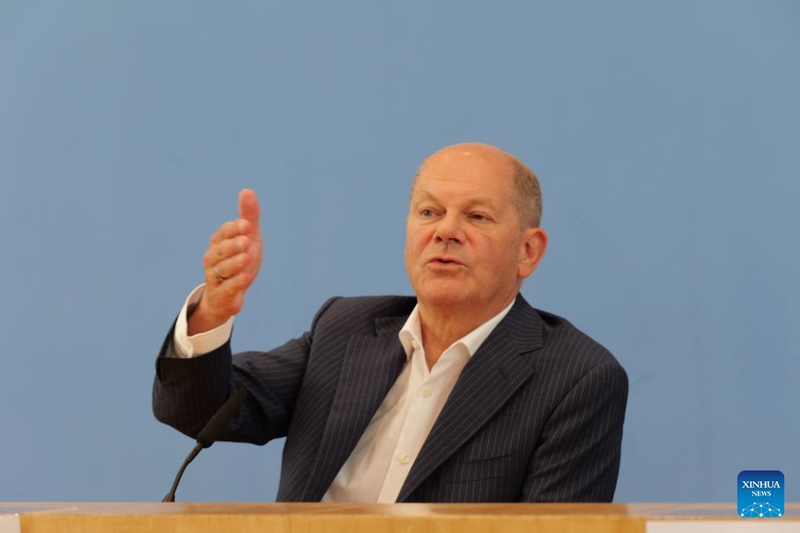Just before the federal election scheduled for February 23, during the final session of the current parliament, German Chancellor Olaf Scholz and opposition leader Friedrich Merz, despite their differences, both declared they would not cooperate with the far-right.
Chancellor Scholz expressed optimism about the Social Democratic Party’s (SPD) prospects in the upcoming election, recalling the party’s success in 2021, and affirmed they would never collaborate with the far-right.
Meanwhile, Friedrich Merz, the opposition leader and chancellor candidate for the Christian Democratic Union/Christian Social Union (CDU/CSU) alliance, stated that cooperation with the far-right Alternative for Germany (AfD) party is impossible.
Previously, in the only live debate before the federal election, Chancellor Olaf Scholz and his rival Friedrich Merz engaged in fierce discussions about several key issues, with immigration being the most contentious. The rise of the far-right AfD party intensified the debate further. Currently, AfD ranks second in many polls (with about 20% support), surpassing both the SPD and the Green Party (with around 15% each).
Although Merz denied the possibility of forming a coalition with AfD, Scholz accused his opponent of breaking his promise by accepting AfD’s support for an anti-immigration motion in parliament late last month. Chancellor Scholz warned that if Merz fails to maintain his stance, the risk of collaborating with AfD in the future would threaten to break Germany’s tradition of no cooperation with the far-right since World War II. Conversely, Merz cited a recent knife attack allegedly by an Afghan suspect to demonstrate the urgency of immigration control.
These developments occurred amid waves of anti-far-right demonstrations across multiple German cities. Last weekend in Munich, Bavaria, over 200,000 people joined protests against the AfD party. Munich police initially estimated 100,000 participants, but the numbers swelled to over 200,000 shortly after the start, at times reaching as high as 320,000. The organisers stated that the Munich demonstration aimed to send a strong signal supporting cohesion. Previously, an anti-far-right march in Berlin had attracted 160,000 people.
In Austria, coalition talks between the far-right Freedom Party (FPO) and the conservative Austrian People’s Party (OVP) collapsed after meeting with Austrian President Alexander Van der Bellen in Vienna on February 12. The parties failed to compromise on EU refugee policies and position allocation, as both sought control of the interior and finance ministries.
In last September’s parliamentary elections, the far-right FPO led with 28.8% of the votes, followed by the OVP with 26.5%, and the Social Democratic Party (SPO) with 21.1%.
Initially, no party wished to form a coalition with the far-right FPO, so the second-placed OVP was tasked with forming a government. However, subsequent three-way coalition talks failed, forcing President Van der Bellen to assign government formation to FPO leader Herbert Kickl. The negotiations with the OVP also failed, pushing Austrian politics into a difficult position that may require a new election.
In Romania, the Constitutional Court annulled the presidential election scheduled for late 2024 after far-right candidate Calin Georgescu unexpectedly won the first round. The Court then suggested President K. Iohannis remain in office until a successor is elected, a move criticised by opposition parties in Parliament, leading Klaus Iohannis to announce his resignation effective from February 12.
The European political parties’ rejection of far-right extremism demonstrates that the continent’s leaders are working to protect the traditional standards and values established over many decades since World War II. However, given the current strong resurgence of far-right ideology, halting the progress of far-right parties remains a challenging task.
















